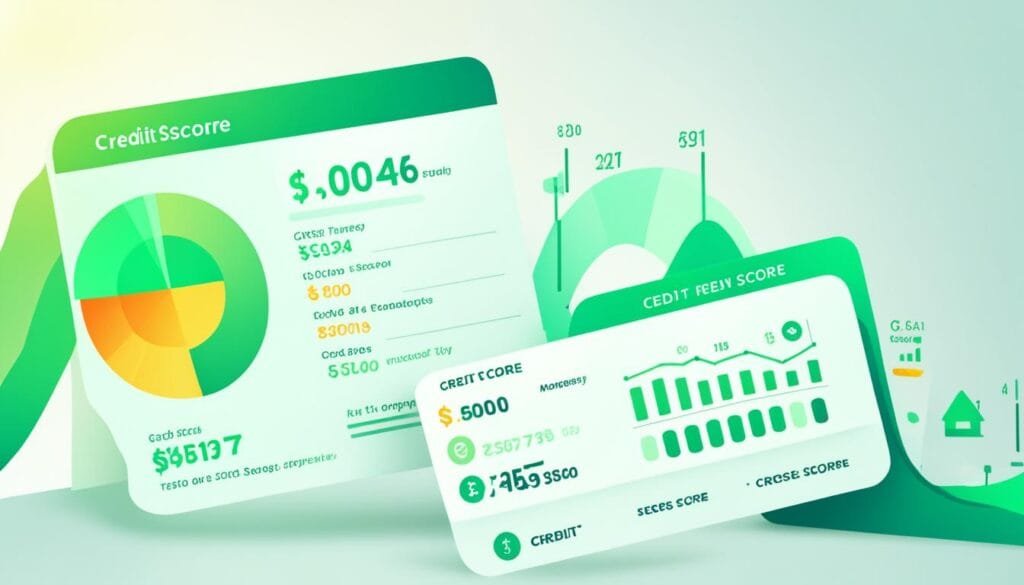Imagine waking up one morning to find that your bank account has been drained, your credit cards maxed out, and numerous unauthorized transactions have taken place in your name. Your heart sinks as you realize that you have become a victim of identity theft. The sense of violation and helplessness is overwhelming, but you know that you must take immediate action to minimize the damage and restore your security.
Identity theft is a growing concern in today’s digital age, with hackers and fraudsters constantly finding new ways to exploit personal information for their gain. Whether it’s phishing scams, data breaches, or sophisticated hacking techniques, no one is entirely immune to the risk. However, being prepared and knowing how to navigate the recovery process can make all the difference in regaining control of your life.
In this comprehensive guide, we will provide you with the best strategies for identity theft recovery. These strategies have been derived from multiple reliable sources and offer a step-by-step approach to help you not only recover from identity theft but also protect yourself against future incidents.
From closing tampered accounts and disputing fraudulent charges to reporting the theft to the Federal Trade Commission and local police, this guide will equip you with the knowledge and resources you need to navigate the complex path to recovery. Additionally, we will explore additional steps you can take to ensure comprehensive recovery and prevent future incidents of identity theft.
Key Takeaways:
- Identity theft can happen to anyone, and it is essential to be prepared and know the necessary steps for recovery.
- Taking immediate action, such as closing tampered accounts and reporting the theft, is crucial to minimizing the damage.
- Documenting all conversations, contacting consumer reporting agencies, and reviewing credit reports regularly are essential for detecting fraudulent activity.
- Filing a complaint with the Federal Trade Commission and reporting the theft to local police are important for official investigation and prosecution.
- Additional steps, like reporting a misused Social Security number and implementing extra security measures, can help in comprehensive recovery and prevent future incidents.
Steps for Victims of Identity Theft or Fraud
When dealing with identity theft, it is crucial to take immediate action in order to minimize the damage and restore your security. The following steps provide a comprehensive guide for victims of identity theft or fraud:
- Keep a detailed log of all conversations, including dates, names, and phone numbers. This will help you keep track of important information and provide documentation for future reference.
- Place a fraud alert on your credit report. This alert notifies lenders and creditors to take extra precautions before extending credit in your name, adding an extra layer of security.
- Close any accounts that have been tampered with or fraudulently opened. Contact the respective financial institutions or service providers to report the fraudulent activity and request the closure of the affected accounts.
- Report the identity theft to the Federal Trade Commission (FTC). The FTC provides valuable resources and assistance to victims of identity theft and plays a crucial role in collecting and analyzing identity theft reports.
- Contact the three major consumer reporting agencies – Equifax, Experian, and TransUnion – to request a copy of your credit reports. Review these reports diligently to identify any fraudulent activity or unauthorized accounts.
- Consider utilizing identity theft services and resources to assist you in the recovery process. These services often provide expert guidance and support to help victims navigate through the complexities of identity theft restitution.
By following these steps, victims of identity theft can take proactive measures to resolve their cases and minimize the impact on their financial and personal lives. Taking immediate action and seeking professional assistance can greatly improve the chances of a successful recovery.
| Step | Actions |
|---|---|
| 1 | Keep a detailed log of all conversations, including dates, names, and phone numbers. |
| 2 | Place a fraud alert on your credit report. |
| 3 | Close any accounts that have been tampered with or fraudulently opened. |
| 4 | Report the identity theft to the Federal Trade Commission (FTC). |
| 5 | Contact the three major consumer reporting agencies to request a copy of your credit reports. |
| 6 | Consider utilizing identity theft services and resources for additional support. |
Closing Tampered Accounts and Disputing Fraudulent Charges
After discovering identity theft, it is important to take immediate action to protect your financial accounts and dispute any fraudulent charges. Closing accounts that have been tampered with or opened fraudulently is a crucial step in restoring your financial security.
To close these accounts, contact the security or fraud department of each company where the fraudulent activity occurred. Provide them with the necessary information and documentation to prove your identity and the unauthorized access to your accounts. It is recommended to do this through a phone call or an email for a prompt response.
Additionally, disputing any fraudulent charges and debits on existing accounts is essential to avoid financial liability. You can do this by requesting the appropriate forms from the company where the charges originated or by using the Federal Trade Commission’s sample letter for disputing fraudulent charges. Be sure to provide all the necessary details, such as the date, amount, and description of the fraudulent transaction.
During this process, it is crucial to maintain a record of all correspondence with the companies involved. Keep a detailed log of your conversations, including the date, time, names of representatives, and any reference numbers provided. This documentation will serve as evidence of your efforts to resolve the issue.
Once the accounts have been closed and the fraudulent charges disputed, it is advisable to obtain a letter from each company stating that the disputed accounts have been closed and any fraudulent debts discharged. This documentation will serve as proof that you have taken the necessary steps to resolve the identity theft and protect yourself from further financial harm.
By closing tampered accounts and disputing fraudulent charges, you can actively minimize the damage caused by identity theft and restore your financial security. Taking swift action and keeping detailed records will greatly assist in the recovery process.
Reporting Identity Theft to the Federal Trade Commission and Local Police
Once you have discovered that you are a victim of identity theft, taking immediate action is crucial. Reporting the incident to the Federal Trade Commission (FTC) and your local police department is an essential step towards restoring your identity and preventing further harm.
Reporting to the Federal Trade Commission:
While the FTC does not investigate individual cases of identity theft, filing a complaint with them is important for several reasons. Firstly, it ensures that your information is entered into the Identity Theft Data Clearinghouse, a national database that assists law enforcement agencies in their investigations and prosecutions of identity thieves.
“Filing a complaint with the FTC provides a vital link in the chain of information that assists law enforcement agencies in detecting patterns of fraud, investigating cases, and tracking down identity thieves.” – FTC Identity Theft Expert
To file a complaint with the FTC, visit their official website at www.ftc.gov/idtheft and provide the necessary information about your identity theft incident. The FTC provides resources and guidance on identity theft restoration, assistance, and prevention, ensuring that you have access to the support you need.
Reporting to the Local Police:
In addition to filing a complaint with the FTC, it is vital to report the identity theft to your local police department. Contact your local police non-emergency line or visit your nearest police station to initiate this process. When filing a police report, bring supporting documentation such as the FTC Identity Theft Report, any evidence you have of the identity theft, and any other relevant information. This report will be used to initiate an official investigation into the crime.
Why File a Police Report?
Filing a police report serves several purposes. Firstly, it provides you with an official record of the incident, which can be valuable when interacting with financial institutions, credit reporting agencies, and other organizations involved in the identity theft restoration process. Additionally, it helps law enforcement identify patterns and trends, contributing to the overall fight against identity theft.
Summary:
Reporting identity theft to the Federal Trade Commission and your local police department is a crucial part of the recovery process. By filing a complaint with the FTC, your information is entered into a national database that can assist in investigations and prosecutions. Filing a police report provides an official record and helps law enforcement identify trends and patterns related to identity theft. These steps, when combined with other strategies outlined in this guide, can help you restore your identity and protect yourself from further harm.

Additional Steps for Comprehensive Recovery
In certain cases, victims of identity theft may need to take additional steps beyond the standard recovery process to fully regain control of their personal information and prevent future incidents. By following the suggestions below, individuals can strengthen their recovery efforts and enhance their overall security.
1. Report Misused Social Security Number
If you suspect that your Social Security number has been misused in any way, it is crucial to report this immediately. Contact the Social Security Administration to inform them of the situation and seek guidance on the necessary steps to rectify the issue. This proactive measure can help prevent further misuse of your personal information.
2. Stop Debt Collectors from Pursuing Fraudulent Debts
If you find that debt collectors are pursuing fraudulent debts under your name, take swift action to protect yourself. Request written proof from the debt collectors that the debts are fraudulent. You can also send them a cease and desist letter, instructing them to stop contacting you regarding these false debts. Seek legal advice if necessary to enforce your rights in these situations.
3. Replace Lost or Stolen Government-Issued IDs
If your government-issued identification documents, such as your driver’s license or passport, have been lost or stolen during the identity theft incident, it is essential to obtain replacements. Contact the appropriate government agency responsible for issuing these documents to report the loss or theft and follow their procedures for obtaining new ones. This step is crucial for preventing further misuse of your identity.
4. Take Extra Security Measures
In addition to the standard identity theft prevention measures, it is advisable to take extra precautions to safeguard your personal information. Regularly scan your devices for malware or malicious software using reputable antivirus programs. Ensure that your antivirus protection is up to date, as it helps detect and block potential threats. By being proactive in these efforts, you can reduce the risk of falling victim to future incidents of identity theft.
Remember, comprehensive recovery from identity theft requires a multi-faceted approach. By not only following the standard recovery steps but also taking these additional measures, victims can regain control of their personal information and minimize the chances of further identity theft incidents.

| Resource | Description |
|---|---|
| National Identity Theft Assistance Center (NITAC) | A nonprofit organization that offers identity theft recovery assistance, support, and educational resources. |
| IdentityTheft.gov | An official website maintained by the Federal Trade Commission (FTC), providing step-by-step guidance on identity theft recovery and prevention. |
| Identity Theft Resource Center (ITRC) | A leading nonprofit organization that provides free assistance to identity theft victims, including personalized recovery plans and resources. |
| Credit Bureaus | Contact the three major credit bureaus (Equifax, Experian, and TransUnion) to place fraud alerts on your credit reports and access credit monitoring services. |
Can Secured Credit Cards Help with Identity Theft Recovery?
Secured credit cards offer a potential solution for individuals looking to recover from identity theft. By requiring a cash deposit as collateral, these cards can help rebuild credit and provide a secure means of making purchases while working on repairing any damage caused by identity theft.
Conclusion
Recovering from identity theft can be a daunting and time-consuming process. However, by following the strategies outlined in this guide, victims can minimize the damage and restore their security. Acting swiftly and diligently is crucial in mitigating the impact of identity theft.
Keeping detailed records of all interactions, including dates, names, and phone numbers, is essential for tracking progress and maintaining a clear timeline. Utilizing available resources, such as identity theft insurance and the support of fraud resolution specialists, can greatly assist in navigating the recovery process.
Prevention is key to avoiding future incidents of identity theft. Staying vigilant and proactive in protecting personal information is paramount. This includes regularly monitoring credit reports, utilizing identity theft protection services, and employing best practices for securing online accounts and sensitive data.
Remember, identity theft is a serious crime that can have long-lasting consequences. By implementing these strategies and remaining proactive, individuals can better safeguard their identities and reduce their vulnerability to identity theft.
FAQ
What should I do if I become a victim of identity theft?
If you become a victim of identity theft, it is crucial to take immediate action. Start by keeping a detailed log of all conversations, place a fraud alert on your credit report, close tampered accounts, and report the identity theft to the Federal Trade Commission.
How do I close accounts that have been tampered with or fraudulently opened?
To close tampered accounts, you need to contact the security or fraud department of each company and provide them with the necessary documentation. Disputing fraudulent charges and debits on existing accounts can be done by requesting the appropriate forms from the company or using the Federal Trade Commission’s sample letter.
What should I do after reporting identity theft to the Federal Trade Commission?
After reporting identity theft to the Federal Trade Commission, it is important to file a police report with your local police department. Provide them with the necessary documentation, including the FTC Identity Theft Report, to initiate an official investigation into your case.
Are there any additional steps I should take for full recovery from identity theft?
Yes, some additional steps may be necessary for full recovery from identity theft. These include reporting a misused Social Security number, stopping debt collectors from pursuing fraudulent debts, replacing lost or stolen government-issued IDs, and taking extra security measures, such as scanning devices for malware and setting up antivirus protection.
What resources are available to assist with identity theft recovery?
Victims of identity theft can utilize resources such as identity theft insurance and the support of fraud resolution specialists. These resources can provide guidance and assistance throughout the recovery process.

